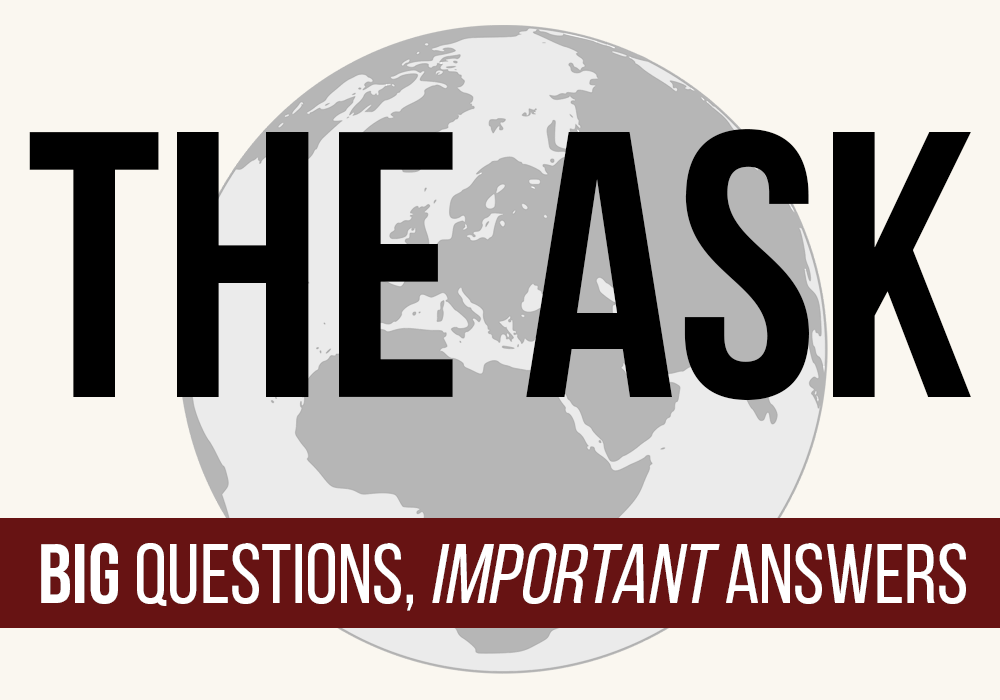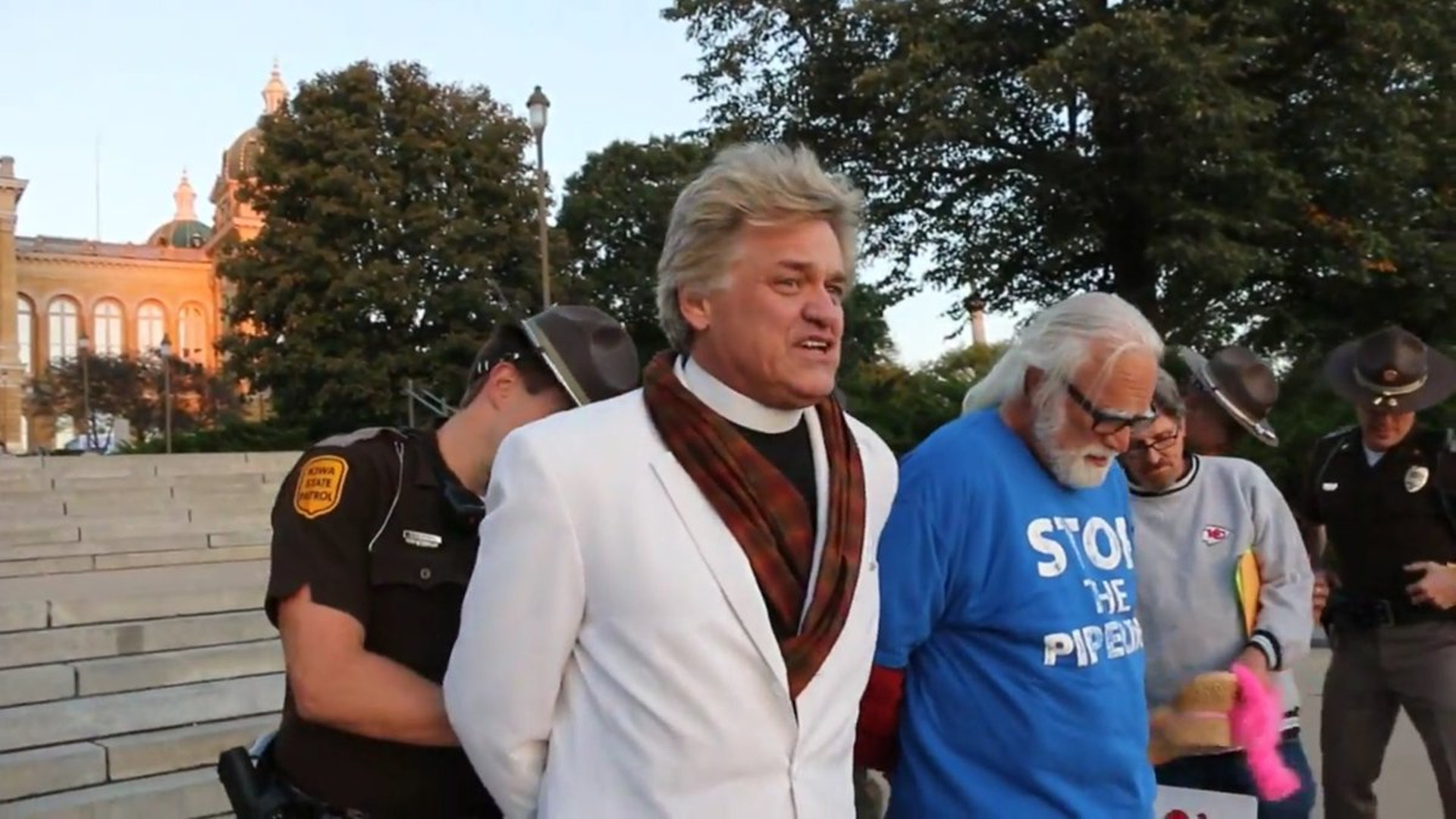This is a tough time to be a protestor.
 Around the country a new wave of legislation has attempted to criminalize people speaking out about environmental and social issues or standing up against governments and corporations. Last month legislatures in Minnesota advanced bills that would have made it illegal for protestors to block highways or associate with people who want to damage oil pipelines. A similar bill in Louisiana also aims to criminalize “conspiracy” to trespass on pipeline property.
Around the country a new wave of legislation has attempted to criminalize people speaking out about environmental and social issues or standing up against governments and corporations. Last month legislatures in Minnesota advanced bills that would have made it illegal for protestors to block highways or associate with people who want to damage oil pipelines. A similar bill in Louisiana also aims to criminalize “conspiracy” to trespass on pipeline property.
These most recent bills join dozens of similar legislative attempts that have been proposed in at least 20 states over the past few years. To date all of these proposed bills have either not passed or been modified to remove unconstitutional language, but one thing about them remains clear: They’re what the ACLU calls a nationwide attempt at “chilling protest.”
But that makes the need for protest even more important, says Reverend Billy Talen, the head of the singing social activist group known as the Stop Shopping Choir. Talen and his team —perhaps best known for their masks of extinct frogs or their song “Monsanto Is the Devil” — have been jailed dozens of times around the country for their bold and purposefully over-the-top protests. The arrests don’t seem to slow them down: They’ve been arrested nine times this year alone.
One of the group’s most noteworthy arrests took place in 2016 in Des Moines, Iowa, where they were protesting Monsanto’s World Food Prize and the company’s glyphosate pesticide. You can see footage of the arrest below:
That arrest — for trespassing, despite the fact that the protestors remained more than 300 feet away from the event — recently resulted in a court victory for Talen and peace activist Father Frank Cordero after the arrest was ruled unlawful. They, and dozens of other arrested protesters, received a shared judgement of $50,000 from the state of Iowa and the guarantee that they could sing and protest across the street from future events.
We spoke with the perpetually outrageous Rev. Billy, author of the book The Earth Wants You, about their First Amendment victory, the need for bold protests, and what other issues they have on their agenda.
There have been so many attempts by various states over the past couple of years to limit protest and free speech by advocates. Is this win in court a step in the right direction for everyone, or at least for activists in Iowa?
This is a small victory against a company that is a vastly scaled crime spree, protected by Clinton/Obama Democrats and Koch Republicans. These are real cowboys, from DDT to Agent Orange to PCBs to killing the honeybees. Corrupting government, placing executives in regulatory positions, is their M.O.
Did we make a difference? “A step in the right direction” is a modest enough phrase for what we’ve done.
What can other concerned citizens learn from your protests, or from this victory?
Our court decision was expected. Their position was ludicrous. The lesson here for our comrades in the Earth struggle would be that you have to be more ludicrous than the corporations. Our choir’s singing invasion of the glyphosate hearings at the EPA — we need more of this kind of thing. We have been too boring to change the world with our march-and-rally, and then another, and then another… Protesters need to remember the outright boldness of the social revolutions that worked. Think of a thousand black people walking on a highway across Alabama. Remember the Redwood Summer, the kayaktivists, Black Lives Matter and Standing Rock.
Looking more broadly, what do you feel is the continued value of protest, especially in this political and corporate environment?
We are approaching the totalitarian environment that the corporations envisioned. In New York you have to get a permit to shout a political opinion in the park. All public space is privatized. Laws govern behavior for the consumer environment, or to avoid annoying rich people. So this makes protest all the more important. We go through oppression cycles in the U.S. The right-wing libertarians of Silicon Valley have combined with the evangelicals and patriots to create a suffocating world. We have to reclaim the First Amendment, a law that makes our better angels fly.
What comes next? Will you be back at the World Food Prize again this fall?
Yes, we will return this fall. Father Cordero and his Occupy the World Food Prize friends have invited us, and we are honored to make the trip. I have family ties in Iowa. My daughter’s namesake, my great-grandmother Lena, lived in an Iowa Dutch community. And the Des Moines community of activists put us up and drove us around and waited outside the jail. We love them.
We’re also continuing to be involved in a lot of related issues. Our band of radical singers worked against toxins and their corporate suppliers all those years, and then suddenly six months ago one of our singers, Ravi Ragbir, was taken by ICE (Immigration Customs Enforcement). He was taken to Miami and then flown back to New York City as lawsuits were filed. Ravi spoke eloquently at our rally at the Varick immigration jail rally on June 21 and may succeed in remaining with his family. The impact of losing our friend was so painfully clear: We turned overnight into partisans of immigration rights.
The through-line of the two causes is a strong reminder that these toxins and deportation are not such separate issues. For instance, they both harm children.
If the human race was facing its last moments and the Earth willed one last breath for us all, then it might occur to us during that final exhale that there is only one issue, and that is life itself. Facing Monsanto and facing Trump, life is the thing that is being attacked and life is our common power. Life-a-lujah!
How do you feel about Monsanto merging with Bayer and the Monsanto name going away? Do you need to rewrite all of your songs?
We’ll have to see with the songs. We sang “Monsanto Is the Devil” on our last tour in Minnesota and Wisconsin. It still works. As for Bayer, the modern company was founded by a Nazi, Fritz der Meer, who spent seven years in prison after the Nuremburg trials, because he designed the shower heads that sprayed the gas Zyklon B at Auschwitz. Der Meer’s company had a factory next to Auschwitz, where Elie Wiesel worked as a boy. Cheap labor, don’t you know. After release, der Meer was reinstated as Bayer’s president. As Bernie Sanders stated, “Monsanto and Bayer is a marriage made in Hell.”
From protesting to preaching, here’s Reverend Billy taking to the pulpit to proclaim the perils of climate change:


